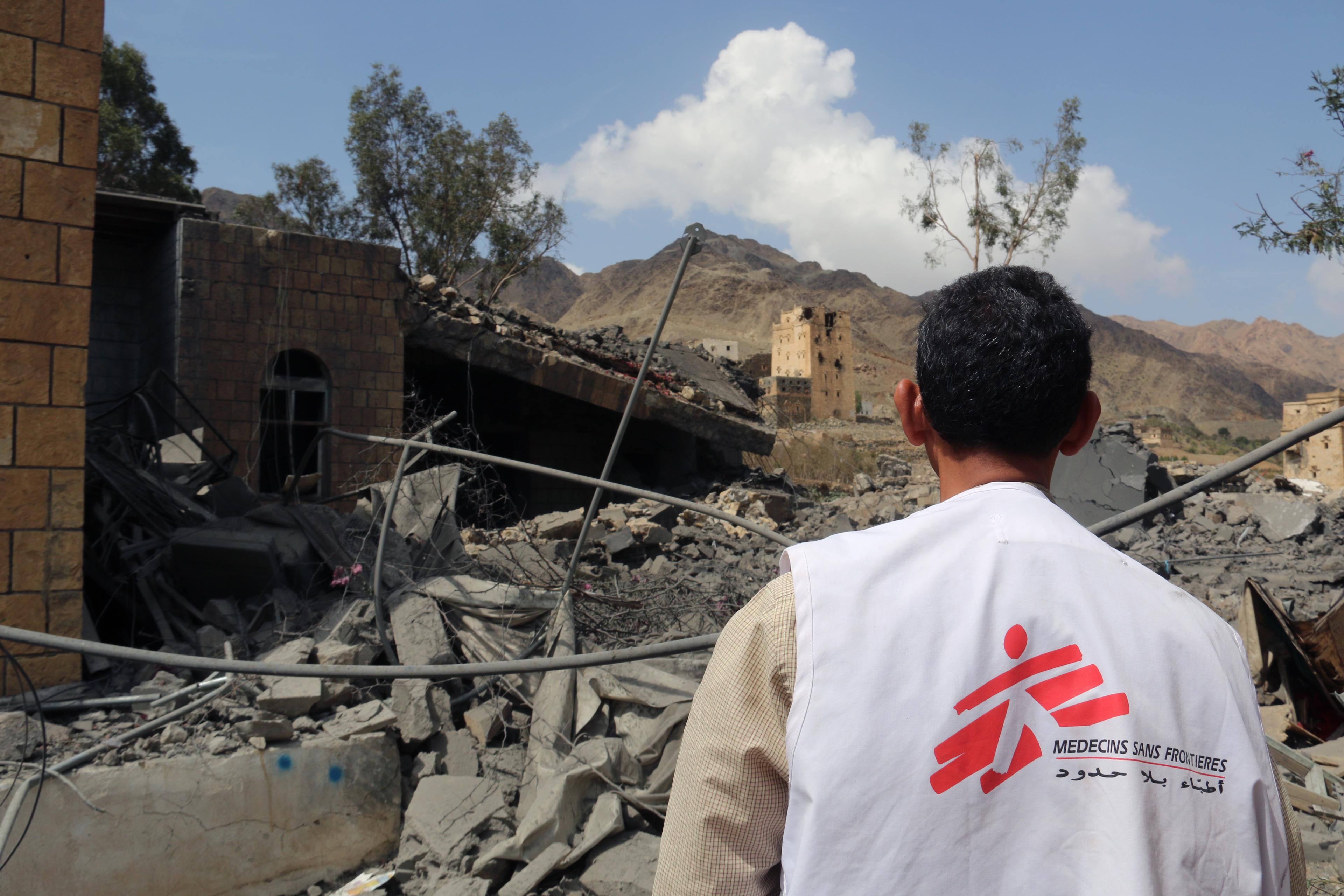
Conflict and war
In warzones, MSF does not take sides. We provide medical care based on needs alone, and work hard to reach the people who most need help. If warring parties see us as being on one side of a conflict, we are less likely to gain access to those in need and more likely to be attacked. One of the ways we are able to demonstrate our independence to warring parties is to ensure that all our funding for work in conflicts comes only from private individuals, not from governments.
Immediate response
Conflicts, be they international wars or internal disputes, can have many consequences. Fear of violence or persecution uproots entire communities and, for those who stay, many are often left without access to medical care.
Conflicts normally lead to a rise in trauma injuries, but also lead to problems for people needing routine medical care, such as for complications with pregnancy or chronic diseases such as diabetes. Psychological distress and mental illnesses often increase. Sexual violence is also common in conflicts. We try to fill these gaps with highly experienced doctors, nurses and logisticians who provide specialized medical care and logistical support.
Intense violence
During times of intense violence, our teams often have to work with a great deal of flexibility. In 2011, with ongoing violence engulfing medical facilities in Misrata, Libya, an MSF team had to find a way to safely and quickly evacuate a large number of severely wounded patients from the city.
The team chartered a fast passenger ferry, removing its seats so that plastic sheeting and mattresses could be laid and intravenous lines set up.
“The violence caused an influx of wounded people and it was fortunate we could be there and get them onboard,” said Helmy Mekaoui, an MSF doctor who coordinated the medical evacuation.
Despite the rough seas, the boat safely arrived in Tunisia the following day with 20 ambulances waiting to take the 71 patients to the hospital.
MSF logistician Annas Alamudi explains: “As far as I’m concerned, it was a successful operation and I’m glad we could help. There were sick people who needed to get out, and we got them out. Job done.”
Highly experienced staff
Working in a war zone can be a frightening, stressful and disturbing experience. Because of this, we exclusively send highly trained and experienced staff who have specifically volunteered to work in such situations.
Paul McMaster, a British surgeon who works extensively with MSF, still finds high security missions challenging. After returning from a mission in Syria where he treated the wounded in an operating theatre set up in a cave, he said: "I've worked in many difficult places with MSF — war zones like Sri Lanka, Ivory Coast and Somalia — but while in those countries it was dangerous on the ground, in Syria the danger always comes from the air. It’s a much more oppressive type of danger, having a helicopter hovering in the sky above you."